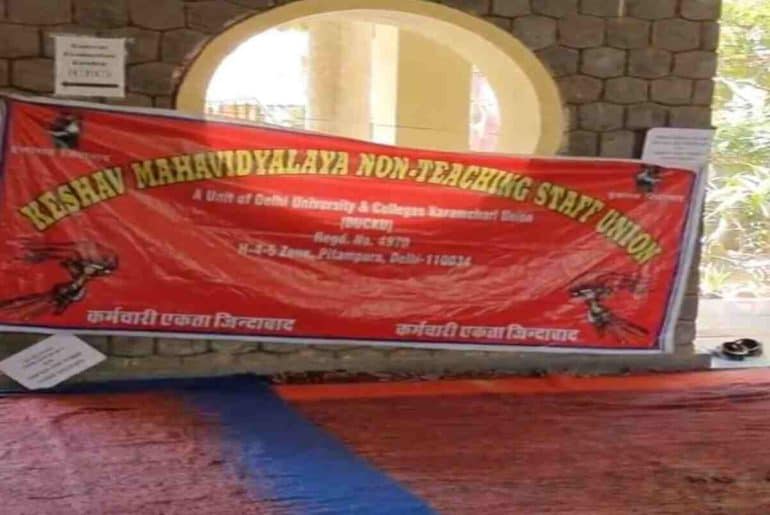Delhi University intends to replace the current B.El.Ed. degree with an integrated course for teachers’ education in compliance with NEP 2020. The move, which is expected to be implemented from July 2023 onward, has been met with opposition from faculty members who have questioned the reasoning behind it.
The Bachelor of Elementary Education (B.El.Ed.) degree at Delhi University is due to be replaced with a new programme beginning this year, the Integrated Teacher’s Education Programme (ITEP), a new four-year course that is expected to commence in July. It will offer the B.A.B.Ed., B.Sc.B.Ed., and B.Com. courses. Foundational, Preparatory, Middle, and Secondary (5+3+3+4): the new school structure laid out in the National Education Policy (NEP) 2020 will be followed to train teachers henceforth.
We will be scrapping B.El.Ed. and bringing in ITEP. For this year, we will run both programmes parallelly. Both can’t run together because teachers are limited; we are not getting new teachers from the government. We are looking at starting ITEP this July, and if there is a positive response, B.El.Ed will be automatically scrapped.
-DU registrar Vikas Gupta, in conversation with The Indian Express
Four colleges under the University of Delhi have applied for the programme. Three of them—Shyama Prasad Mukherjee College, Jesus and Mary College, and Mata Sundri College—will launch the new programme this year following approval from the National Council for Teacher Education (NCTE). The rationale given behind the scrapping of the B.El.Ed. programme is the implementation of NEP and the objective of transformational improvements in the education system.
Every course has its durability. For instance, now that NEP has come into effect, the Choice Based Credit System (CBCS) has automatically ended. Existing teachers are qualified; they will teach the new course. Colleges have provided a list of teachers, post which the NCTE has given its approval.
-DU registrar Vikas Gupta, in conversation with The Indian Express
According to a statement by the Press Information Bureau (PIB), a flagship programme of NCTE under NEP 2020, the ITEP will be launched in 57 Teacher Education Institutions (TEIs) from the academic session 2023–24.
This integrated course will benefit students since they will save one year by finishing the course in 4 years rather than the customary 5 years required by the present B.Ed. plan… The course will contribute substantially to the revitalization of the whole teacher education sector.
– statement issued by PBI on March 4, 2023
Reportedly, teachers have expressed concern about the decision and questioned the need for its scrapping considering it is a “popular course with a high placement record.” The Department of Elementary Education hosted a meeting last week wherein faculty members urged the University and the governing board to reconsider the decision. Teachers agreed with the implementation of ITEP in light of more extensive reforms to teacher education in accordance with the NEP. However, they insisted that it should be an addition rather than a replacement to the existing curriculum. According to The Indian Express, teachers and educationists at the meeting called the ITEP a “pedagogically and academically flawed programme.”
What is the rationale for removing one course to start another? B.EL.Ed. is the first and only professional degree programme that prepares teachers for elementary classes (I-VIII), mandated under the Right to Education Act. It weaves together general and professional education. ITEP, on the other hand, is designed as a 3+1 programme, where 3 years is focused on general education and one year for professional training.
-Prof. Maya John, a member of DU’s academic council, in conversation with The Quint
The B.El.Ed. programme was launched in 1994 by Delhi University and is currently offered in eight colleges. It was the first integrated teacher programme for elementary education that an Indian university had ever provided.
The B.El.Ed. programme, with its interdisciplinary approach and integration of general and professional education, has successfully trained over 8,000 teachers, in consonance with the Constitutionally mandated Right to Education Act.
-Prof. Poonam Batra, a retired DU professor who co-created the B.El.Ed. programme
Teachers have questioned the justification for the implementation of ITEP, claiming it is “inadequate” to provide the requisite skills.
The ITEP programme provides only one-year professional training following three years of general education (BA/BSc), which is inadequate to equip teachers with the necessary knowledge and capacities for teaching diverse levels and classrooms. Imposition of ITEP goes against university statutes that protect the university’s autonomy to design curricula.
-Prof. Poonam Batra added
Pankaj Arora, Dean of the Department of Education, disagreed with this assertion and claimed that the “new course caters to the needs of the new structure as envisaged by NEP.”
The new course is a dual degree course. This will allow vertical mobility because it has multiple entry and exit points. This means that if students complete three years and leave, they will still get their degrees. Moreover, they go on to pursue their Masters and will even be eligible for Ph.D. under the new Ph.D. regulations.
-Dr. Pankaj Arora, Dean of the Department of Education
Read also : Demand Raised for Permanent Principal in SBSEC (Evening) – DU Beat – Delhi University’s Independent Student Newspaper
Featured Image Credits : The Indian Express
Manvi Goel
[email protected]










